Partners

Saving India’s Tigers is managed by a committed set of partners who are dedicated to preserving and improving the tiger habitats at present focussed on Central India. We are active across the full range of risks to habitat.
Saving India’s Tigers provides an umbrella organisation for our Partners and organises, amongst other things, an annual seminar to discuss issues and share best practice. Government officials attend our seminar to widen our effectiveness.
“Networking is essential to deliver good conservation action and make effective use of limited human and financial resources. By supporting SLTP you will enable these courageous conservationists to stay true to their calling”.
Professor Claudio Sillero, WildCRU, University of Oxford and Born Free Foundation

Bombay Natural History Society
Established in 1883, BNHS is one of the oldest and largest NGOs engaged in conservation and research in India and first drafted the Indian Wildlife Protection Act, 1972. The Society’s guiding principle has always been that conservation must be based on scientific research. With five offices in various parts of India and over 30 field stations, BNHS is working in most of India’s critical habitats and focuses on several critically endangered species. www.bnhs.org

Conservation Action Trust (CAT)
CAT is protecting India’s forests and biodiversity by educating and enlightening decision-makers and the public about the importance of forests for our survival. The role of forests in protecting the water security of the country is a major focus area for CAT. Research, education and awareness generation as well as litigation are tools used by CAT, ensuring the implementation and improvement of laws and policy governing India’s natural environment. www.cat.org.in
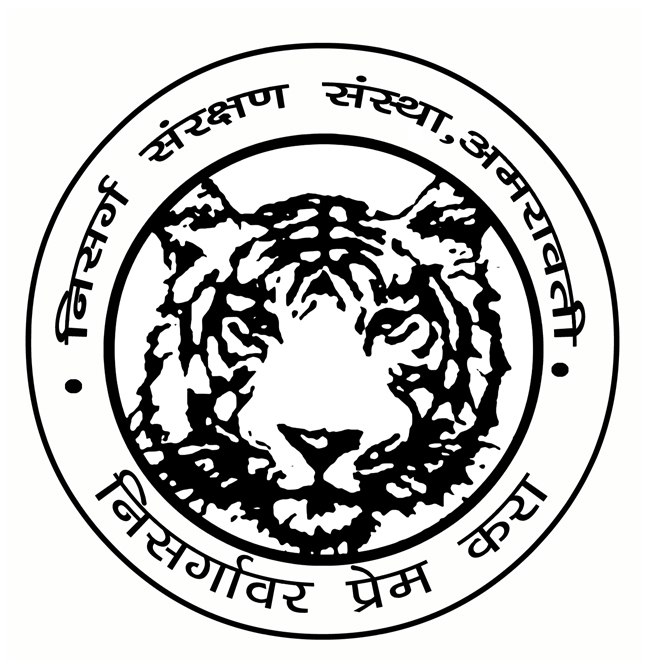
Nature Conservation Society Amravati (NCSA)
Community participation has been the bedrock of NCSA’s approach to conservation over the past 20 years. With the guiding philosophy that efforts to protect forests should involve those communities dependent on them if they are to be successful, NCSA has built up a conservation model across the Satpuda landscape that has built trust with, and delivered tangible benefits to, marginalized society.

Tiger Research and Conservation Trust (TRACT)
TRACT was formed in 2001 to implement innovative conservation methods to protect tigers in Central India. Through research, science-based conservation and networking within and outside protected forests, TRACT works closely with the Maharashtra Forest Department and Central Government to monitor tiger activity and mitigate human–wildlife conflicts. www.tractindia.org

WildCRU
The University of Oxford’s Wildlife Conservation Research Unit (WildCRU) delivers practical solutions to conservation problems through original scientific research. It is at the forefront of scientific research into biodiversity, livelihoods, food security, health and climate change. Whether the focus is on species or ecosystems, on protection or sustainable use, on wildlife or people, WildCRU is dedicated to producing the science that builds the policies to deliver solutions. www.wildcru.org

The Network for Conserving Central India
The Network for Conserving Central India aspires to be a network dedicated to maintaining the jugalbandi of people and nature in the central Indian landscape by linking knowledge with action.
The backgrounds and skill-sets of partners are very diverse- scientists, managers, NGOs, conservationists, photographers, citizens, policy makers, educators, lawyers, tourism sector, and many more.
The NCCI also organises a biennial symposium that brings together partners and other stakeholders and gives them a forum to interact and think together about the future of the unique and iconic Central Indian landscape.

Born Free Foundation
The Born Free Foundation is a dynamic international wildlife charity, devoted to compassionate conservation and animal welfare. Since its establishment in 1984, it has grown into a global force for wildlife, taking action worldwide to prevent the exploitation of wild animals in captivity, and to enhance the survival of threatened species and natural habitats while safeguarding the welfare of individual animals. Big enough to make a difference, but small enough to care, Born Free is a family of like-minded people who share the same goals. www.bornfree.org.uk

The Corbett Foundation
The Corbett Foundation (TCF) primarily works with the communities living in and around the tiger reserves of Corbett (in Uttarakhand), Kanha and Kanha-Pench Corridor (in Madhya Pradesh), Bandhavgarh (in Madhya Pradesh) and Kaziranga (in Assam). See their YouTube video here.
TCF has been involved in grassroots conservation programmes with community participation wherever possible, and works to reduce the dependency of forest-dependent communities on the forests and to mitigate human-conflict issues such as livestock depredation by carnivores (tigers and leopards) and crop-raiding by herbivores (deer, elephant, wild boar). www.corbettfoundation.org

Satpuda Foundation
Set up in 2001, the Satpuda Foundation devises sustainable, long-term conservation initiatives based on voluntary community participation. It firmly believes that effective conservation outputs can only be achieved with the involvement of all stakeholders and is implementing creative poverty alleviation solutions to reduce anthropogenic pressure on tigers and their habitat. www.satpuda.org.

Wildlife Conservation Trust (WCT)
The Wildlife Conservation Trust (WCT) was founded to safeguard India’s life-giving ecosystems in a holistic, sustainable manner. Recognising the interconnectedness between people and ecosystems, WCT uses a 360° approach to conservation by placing equal emphasis on both forest and wildlife conservation and community development. WCT works closely with forest departments across the country to fortify on-ground protection by training and equipping frontline forest staff. Through partnerships with NGOs, the Trust is attempting to strengthen public education systems, provide alternative livelihood options to rural youth and make healthcare accessible to people living in and around India’s forests. The idea is simple—secure key wildernesses to safeguard wildlife, people and rivers, and mitigate climate change. www.wildlifeconservationtrust.org
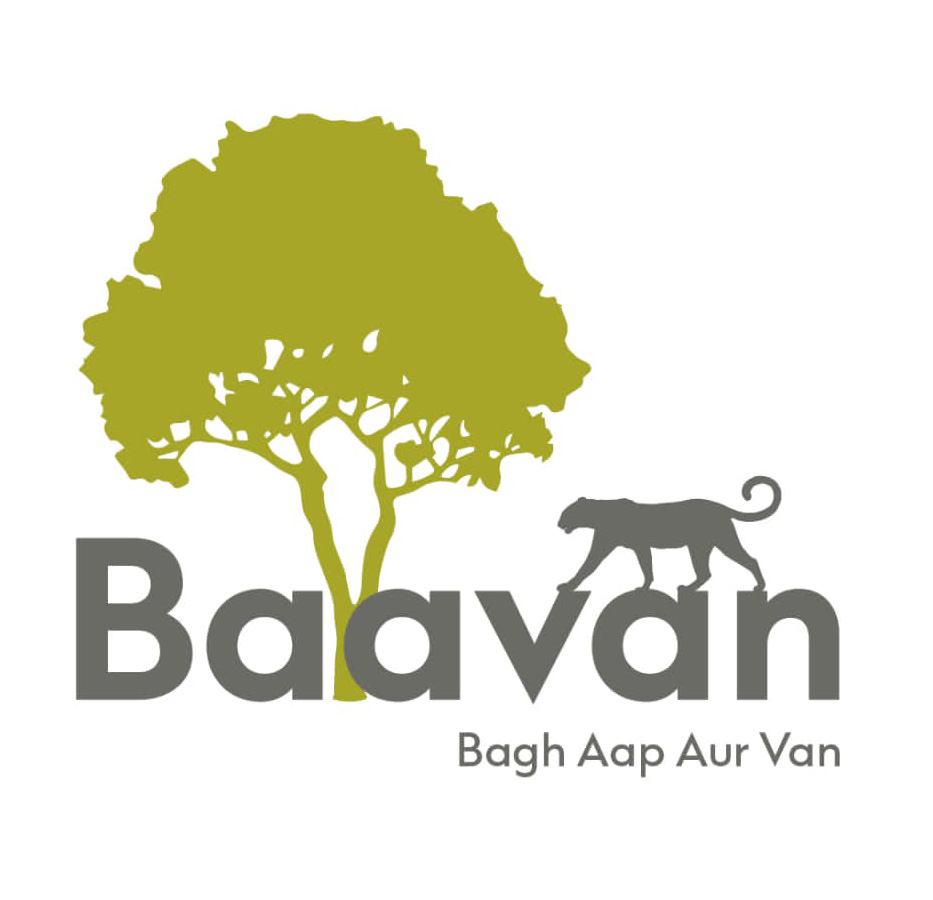
BAVAAN
The BAAVAN (Bagh Aap Aur Van) trust was set up, as its name suggests, to further the interests of wildlife, forests and people. The emphasis is on scientific research that can enhance understanding of India’s flora and fauna and on promoting wildlife conservation in association with the communities living in and around protected areas. The trust was named after a key tigress that lived in Panna National Park in the 1990s and early 2000s, so-called for the markings above her eyes that could be read as a ‘5′ and a ‘2’.
Our Partner Principles:
Our partners have all signed up to our vision, values and principles which have remained unchanged since our formation in 2005.
The principles that guide our interaction with partners are as follows:
- Egalitarian networked NGO
- Pragmatic rather than idealistic solutions
- Independence of individual Partners respected
- Small enough to respond, big enough to make a difference
- Working closely with local people and institutions
- Leveraging synergy between parks
- Apolitical – whilst being politically wise
- Influencing federal behaviours for better decision making
- Benefits to people are local, national and global.
The Saving India’s Tigers Core Team
Whilst Saving India’s Tigers has more than 200 people working in the field, the core team consists of:

Raghunandan Singh Chundawat
Representing: Bagh Aap Aur Van
Dr. R. S. Chundawat started his career as a conservation biologist more than thirty years ago with pioneering research on the ecology of snow leopard and its prey species in the Ladakh mountains. He is very closely involved with tiger conservation and conducted a ten-year highly acclaimed and unique tiger study in Panna National Park, a dry tropical forest of central India. He was also associated with Wildlife Conservation Society and Smithsonian during his work on tiger in Panna Tiger Reserve. He is the recipient of several awards including Esso’s ‘Honour for Tiger Conservation’ in 2001; the ‘Carl Zeiss Wildlife Conservation Award’ 2002 for excellence and the ‘Tiger Gold’ award in 2003 for outstanding scientific work with wild tigers. In 2003 BBC/Animal Planet produced an award winning wildlife documentary film on his work with the tigers in Panna − “Tigers of the Emerald Forest”.
Dr. Chundawat has also published a book- ‘The Rise and Fall of the Emerald Tigers’ which details his work in Panna.
Twitter: https://twitter.com/ChundawatRaghu
Instagram: https://www.instagram.com/raghuchundawat/

Claudio Sillero
Representing: WildCRU, University of Oxford
Claudio Sillero is a Professor of Conservation Biology at the University of Oxford, where he serves as Deputy Director of WildCRU and Senior Research Fellow at Lady Margaret Hall. Claudio has dedicated 40 years to the study and conservation of threatened mammalian species, impacts of disease, mitigation of people-wildlife conflict, protected areas management, transfrontier conservation, and the role of professional networks in conservation. Claudio is the Chair of the IUCN SSC Canid Specialist Group overseeing the conservation needs of all members of the canid family and is internationally recognized for his work on the endangered Ethiopian wolf (Canis simensis).
Twitter: https://twitter.com/ClaudioSillero

Poonam Dhanwatey
Representing: Tiger Research and Conservation Trust
Co-Founder, Trustee and Secretary of TRACT, Poonam quit her interior designing company and turned her passion for wildlife into full time career. Over the last 2 decades, she has worked extensively for voluntary resettlement of locals from the reserves, towards mitigating human – tiger conflict and creating a social fence by involving local communities in conservation. She is a trainer for wildlife conservation, is a member of the Maharashtra State Board for Wildlife and the Honorary Wildlife Warden of Chandrapur District. Her conservation work has been documented in various documentaries and she has also been honoured with the Carl Zeiss, Roll of Honour.

Nikki Tagg
Representing: Born Free
Dr Nikki Tagg is the Head of Conservation at the Born Free Foundation in the UK. She oversees the implementation of five conservation programmes in Africa and Asia, including the Satpuda Landscape Tiger Partnership. Born Free’s conservation programmes address issues such as human-wildlife conflict, bushmeat hunting and connectivity, and ultimately promote coexistence in multi-land use landscapes. She is trained as a zoologist, specialising in primatology and conservation science, and her previous research has focussed on conservation biology of chimpanzees and gorillas in Central Africa.
Twitter: https://twitter.com/NikkiNama
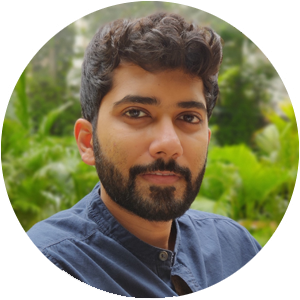
Yashvadhan Dalmia
SLTP Coordinator
Yash is a Corporate Social Responsibility (CSR) professional with several years of experience in working on projects and roles in the environmental conservation space involving close interaction with NGOs and specifically focused on holistic program management, monitoring, reporting, research, and stakeholder management.

Debi Goenka
Representing: Conservation Action Trust
Debi Goenka is one of India’s well-known conservationists leading CAT. He has been working in the field of environmental protection in India since 1975, and has pioneered several successful campaigns to protect the natural environment. Some of the most notable success stories have been the protection of mangroves, the protection of the Borivali National Park, and the success in protecting over 3,500 square kilometers of forests in Vidarbha from denotification. He has also been involved in campaigns to prevent the denotification of the Melghat Tiger Sanctuary, the notification of Dahanu Taluka as an ecologically sensitive area, the protection of the coastal areas of Murud Janjira, the declaration of the Nandur – Madhameshwar bird sanctuary, as well as the campaign against Enron.
Twitter: https://twitter.com/mangrovesindia
Instagram: https://www.instagram.com/debigoenka/

Kedar Gore
Representing: The Corbett Foundation
Backed with a Master’s in Zoology and a Post Graduate Diploma in Management, Kedar Gore has been actively engaged since 1997 in wildlife conservation and environmental protection work with reputed NGOs such as WWF-India and TERI. Kedar has been working as the Director of The Corbett Foundation since July 2009 and heads of all its divisions. He has received the NUFFIC Fellowship of The Netherlands Government in 2009 and 2012, and is a Fellow of the International Visitor Leadership Program 2010 of the US Department of State. He has a Post Graduate Diploma in Conservation Biology from the Bombay Natural History Society, in addition to other professional courses from the Wildlife Institute of India, the Wageningen University, and the US Department of State. He has been serving as a Member of the IUCN Commission on Education and Communication since 2005.
Twitter: https://twitter.com/kedargore
Instagram: https://www.instagram.com/wilderness.unlimited/
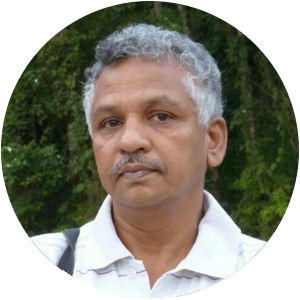
Nishikant Kale
Representing: Nature Conservation Society Amravati
Dr. Nishikant Kale, is professor of Mechanical Engineering and a keen nature lover. He is a social activist and a founder member of Nature Conservation society, Amravati, India (NCSA), working for the conservation of environment. He is also an active climate change leader. At NCSA he is working hard for 25 years to save the wildlife in Melghat tiger reserve. He motivates people to use locally available biofuels, solar energy, wind energy and biogas rather than overusing the conventional sources. The NCSA operates a mobile health unit to provide basic health services to the remote tribal villages situated deep inside various tiger reserves in central India. He has been associated with Born free foundation and SLTP since its inception.

Kishor Rithe
Representing: Satpuda Foundation
Kishor Rithe has done his Post Graduate Diploma in International Wildlife Conservation Practices from University of Oxford. He has been working as a conservation practitioner for more than 25 years in central India. His work with the local communities, academicians, field biologists, media, politicians and administrators for conservation of Satpuda Landscape is well recognised at national and international forum. He has served on many policy making bodies including the National Board for Wildlife (NBWL).
Twitter: https://twitter.com/Kishor_Rithe
Instagram: https://www.instagram.com/kishorrithe2103/
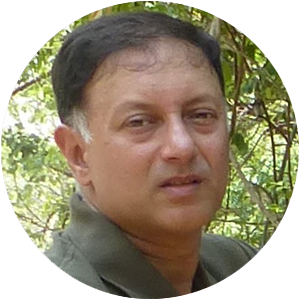
Harshwardhan Dhanwatey
Representing: Tiger Research and Conservation Trust
Co-Founder, Trustee and President of Tiger Research and Conservation Trust, Harshawardhan has devoted more than 20 years to wildlife conservation. Trained for Conservation Conflict Resolution and as past member, Maharashtra State Board for Wildlife, he has spearheaded the private conservancy concept and joint patrols for wildlife, taking forward his work on protecting tigers beyond boundaries.

Anish Andheria
President of WCT
A Carl Zeiss Conservation Awardee, Dr. Anish Andheria is a fellow of LEAD and the President of the Wildlife Conservation Trust. A distinguished Alumni Awardee from the Institute of Chemical Technology with a Master’s Degree in Wildlife Biology and Conservation. He has co-authored two books on Indian wildlife and contributed to several other publications. Anish is a member of the National Tiger Conservation Authority (NTCA) and both Maharashtra and Jammu & Kashmir State Boards of Wildlife and part of the Organising Committee of the ‘India Climate Collaborative’ (ICC) and the Governing Council of the Bombay Natural History Society. He has played a pivotal role in setting up the renowned Kids for Tigers initiative.
Twitter: https://twitter.com/anishandheria
Instagram: https://www.instagram.com/anishandheria/

Joanna Van Gruisen
Joanna Van Gruisen
Joanna Van Gruisen is from the UK but has lived in the subcontinent since the late 1970s. She came to India in 1981 to make wildlife documentaries for Survival Anglia TV and has lived there ever since. An early pioneer of wildlife film-making and photography in India, she has been part of the conservation scene for several decades, filming, photographing, writing, researching and editing.
She presently lives in Madhya Pradesh where she co-runs a small eco lodge with Raghu Chundawat and is a founding trustee of Baavan. Her particular interests include the political ecology of conservation, bridging the gap between the biological and social sciences. A prominent concern is with issues at the interface of conservation and development in the belief that there is an essential interrelationship between the two, both at a local and at the global level.

Tony Renton
Adviser/Chair
Tony spent some 30+ years with BP in a variety of technical, commercial and executive oil management roles in Europe, Asia, Australasia, West Africa, South America and the US leaving as Commercial Director with responsibility for business development across the Middle East. Tony left BP in 2006 to pursue a number of projects. Tony is Chairman of a few technology companies including S-Cube – developing mathematical algorithms, EPEX Training – using business simulation to train executives, OGL-Geothermal – a geothermal energy company and Airponix – growing food with fog.
